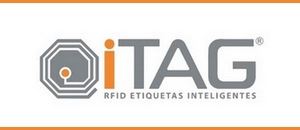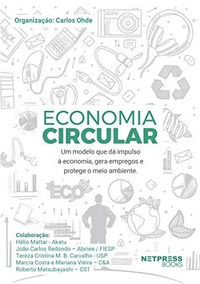Sandra Maura
Driven and accelerated by the pandemic, hybrid work has expanded in recent years as a new reality for the routine of companies. Today, for example, it is estimated that more than half of organizations have already adopted the remote or blended model as part of their day-to-day processes.
The gains pointed out are mobility, flexibility, time and resources savings, including leading to the reinvention of offices as smarter environments and molded to the needs of workers. In addition to the operational advantages, however, there are also other areas impacted by this hybrid world. Among them, for example, is sustainability.

The combination of fewer people being forced to move around cities and the smart use of spaces, including more modern and efficient technological solutions, is an important way to reduce the environmental footprint and reduce expenses of all kinds within organizations.
Companies and the ESG agenda
When we talk about sustainability, therefore, it is not just in relation to the preservation of the environment. Parallel to this huge point of environmental concern, companies have in the hybrid model an opportunity to balance their investments and expenses in a more sustainable and organized way.
It is worth noting that this more flexible approach speaks directly to the growing concern of companies around the agendas of the ESG (Environmental, Social and Governance, in English – or Environmental, Social and Governance, in Portuguese) and CSR agenda. (Corporate social responsibility).
That’s because the adoption of a more open and mobile model, today, can make organizations more sustainable in all aspects: environmentally, reducing emissions through reduced business trips and fewer trips for the company; socially, by allowing talent to be discovered and trained from all corners of the planet; and in governance, by simplifying data and process management. These are valuable points that cannot be disregarded.
To make this mobile model a successful reality, however, companies are being challenged to find ways to enable flexibility at scale in their operations.
In this scenario, without a doubt, technology plays a central role, both in finding ways to use offices and spaces in a responsible and intelligent manner and in speeding up and guaranteeing the high availability of resources and information to employees – which will, in ultimately, maximum day-to-day performance. The IT area, more than ever, is the facilitator of innovation and business sustainability.
Sustainability and Business Continuity
We must also emphasize that the construction of more modern digital infrastructures, which allow for more effective remote work and intelligent use of offices, is a basic need for companies that want to attract the best professionals in these new times.
According to IDC data, for example, 54% of workers who already work remotely would only accept a new opportunity if the company offered flexible work. Making a company sustainable is, above all, thinking about business continuity and attracting the best for the future. Therefore, understanding how to connect people from different places in a truly efficient way is essential.
It is also essential to offer smart, well-equipped spaces that add value to the professional’s experience in the company (preferably combining the experience of working from home with what exists in the office). These two sides of the job need to be constantly optimized – and the adoption of new technologies is part of that daily build.
The sustainability brought by the Home Office era goes beyond the positive environmental impact of reducing the carbon footprint generated by people’s daily transport. Institutions should also consider whether they are conducting business in a healthy way and supporting their employees.
Does the operation routine have the tools to connect and bring teams together? Is the office experience practical, simple and pleasant? These are questions that leaders can no longer put off.
Hybrid Work is the Future
Regardless of its specifics, to be successful and sustainable, hybrid work needs to be able to support not only productivity but also cooperation, engagement and integration.
In this context, we find challenges that organizations face and this includes ensuring the security of devices, connections and cooperation; develop a corporate culture and ensure that remote professionals feel connected and part of the face-to-face teams.
Hybrid work is the future, offering companies a way to cut costs and professionals a chance to balance their career and personal lives, as well as the chance to reduce the carbon footprint of the business in the process.
Even if the transition to this model was driven by necessity, as a result of the pandemic and the demands of employees, there is no reason for this way of looking at business to be revised. On the contrary. Consolidating connection services and rethinking the office for the future is the way to go.
Towards the global world, it is time for companies to also accelerate their digital transformations. Only then will they be able to maximize sustainability, innovation and business results.
Sandra Maura is TOPMIND CEO.



















